Key Information
CPD Hours: 16 hours
Course Length: Four weeks
Course Format: A mixture of pre-recorded weekly webinars (which can be reviewed throughout the course), live weekly Q&A sessions with the tutor, self-assessment tasks, supplementary reading material and tutor-moderated online discussion forums
Enrol Now
This course may run again in the future. To register your interest please contact us.
Alternatively you can download and email using our Registration Form
Course Information
- Partial pancreatectomy: why should you never be tempted to segmentally resect an insulinoma in the middle of a pancreatic lobe, leaving the most distal part of the pancreas in place?
- Adrenalectomy: what perioperative strategies are indicated to decrease the risk of postoperative pulmonary thromboembolism after resection of a cortisol-secreting adrenal tumour?
- Thyroidectomy: how should you minimise the risk of life-threatening haemorrhage?
- Parathyroidectomy: how many parathyroid glands can be safely removed during surgery without a risk of permanent hypoparathyroidism?
Would you like to improve your knowledge and gain practical tips regarding endocrine tumour surgery and perioperative management in small animals?
Surgical management of endocrine tumours is a delicate activity and requires intense perioperative monitoring. Surgical excision of endocrine tumours is the treatment of choice, as it offers improved long-term survival rates compared to medical management. During this course, participants will review surgical anatomy and (patho) physiology of the endocrine glands. Techniques to improve surgical treatment of endocrine tumours and perioperative management, including anaesthesia and critical care elements will be discussed.
Why do this course?
With appropriate training, surgical excision of endocrine neoplasms of the thyroid, parathyroid, adrenal cortex and pancreas is relatively low risk in experienced hands. However, surgical excision of endocrine neoplasms should only be performed when intense requirements for perioperative management of these patients can be met. The course will provide participants with a solid basis in the fundamentals of endocrine tumour surgery in small animals and perioperative care.
The webinars for this course will be pre-recorded and can be viewed as recorded versions throughout the course. A live Q&A session with the tutor will run on the following dates at 1:30pm London time
Live Q&A dates:
Wednesday 18th September
Wednesday 25th September
Wednesday 2nd October
Wednesday 9th October
Floryne Buishand, DVM PhD DECVS FHEA MRCVS
Lecturer in Small Animal Soft Tissue Surgery
The Royal Veterinary College
Stefano Cortellini, DVM MVetMed DipACVECC DipECVECC FHEA MRCVS
Senior Lecturer in Emergency and Critical Care Medicine
The Royal Veterinary College
Matteo Rossanese, DVM SPSA MSc DipECVS CertAVP PGCertVetEd FHEA MRCVS
Senior Lecturer in Small Animal Surgery
The Royal Veterinary College
Relevant CPD courses you may find of interest
Webinar Plus: Oncologic emergencies
Medical oncology - insights into diagnostics and chemotherapy online
Recorded Webinar Plus: A multidisciplinary approach to oncologic surgery
Webinar Plus: Feline endocrinology
Webinar Plus: A coaching approach to line management and leadership in the veterinary workplace
Webinar Plus: Master how to thrive (not just survive) in veterinary practice
Webinar Plus: Overcoming challenges to communication in practice

